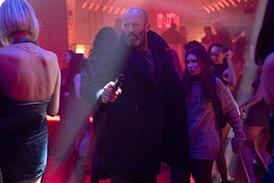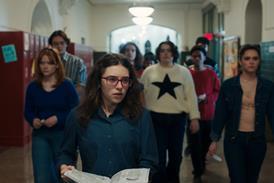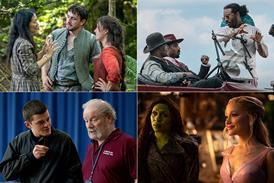Kimberly Peirce was in New York on the day of the World Trade Center terrorist attacks and recalls vividly her emotional devastation at the sight of the towers' collapse.
In the tense aftermath, she began reflecting on how her life and the lives of those around her had fundamentally changed.
Her grandfather fought in the Second World War and her brother enlisted in the military following 9/11. 'I immediately knew I wanted to make a movie about the soldiers - who they were, why they were signing up, what their experience in combat was and what their experience coming home was,' Peirce says.
The director made a striking feature debut with Boys Don't Cry, the 1999 fact-based hate-crime story that attracted strong critical notice and captured the first of two best actress Academy Awards for Hilary Swank.
Peirce's second feature, Stop Loss, opens on March 28. The title refers to the controversial US policy of involuntary extensions of military assignments. Starring Ryan Phillippe, Joseph Gordon-Levitt, Channing Tatum and Abbie Cornish, the story shifts between Iraq and a small Texas town, detailing the social and personal repercussions of a soldier's challenge of his stop loss order.
Peirce acknowledges the marketing challenges facing her film, especially in light of the commercial failure of other ambitious Iraq-themed projects. 'I passionately believe this movie is different,' she insists.
'I have to say this is the first story solely inspired by soldiers' stories. I studied the great Second World War and Vietnam movies. I wanted to make a movie in that vein but I did not want to draft those experiences on to this. I wanted to come up from the inside of this.'
The nine years separating her first and second features is a reflection of her uncompromising standards. She dropped out of directing Memoirs Of A Geisha over her refusal to cast non-Japanese actors in the lead roles and her desire to shoot a more sexually explicit and harder-edged work (Peirce holds a degree in Japanese literature from the University of Chicago and spent two years in Japan). A Robert Towne script about the 1922 murder of silent-film director William Desmond Taylor collapsed over the budget.
'I wish I had worked quicker,' she says. 'If I found a movie in Hollywood that on the character level was interesting, moving and had a sense of humour similar to my own, I'd direct it in a heartbeat.'
Her films have developed out of her personal passions and necessarily take time to nurture and develop. 'The next one won't take nearly as long.'

















No comments yet